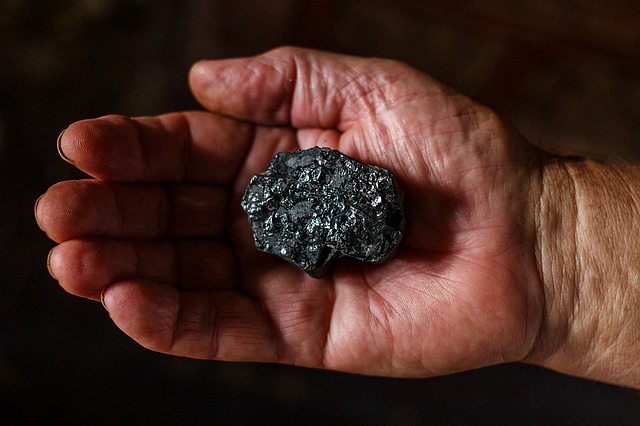For years, Republican politicians campaigning in the state of Kentucky have used the fictitious “war on coal” talking point to gain support from voters. From Senator Mitch McConnell who has represented the state in the U.S. Senate for 32 years, to President Donald Trump, the generally accepted rule has been that talking about the importance of coal and coal jobs, while attacking environmental safety standards that put a “burden” on the coal industry, is the key to winning in the state of Kentucky.
But if new reports are to be believed, that conventional wisdom about running a campaign on coal could be suffering the same fate as the coal industry itself.
Research from the Yale Program on Climate Change Communication shows that a majority of voters in Kentucky understand that climate change is not only real, but that something must be done about the problem. And, almost as importantly, they now understand that those coal jobs that politicians like Trump and McConnell promised to bring back will not be returning.
It’s important to remember that following the 2012 Presidential elections, the coal industry itself admitted that there was no “war on coal” and that their desire to have politicians push the issue failed miserably. But that never stopped the industry from donating to politicians who were more than willing to push that talking point to energize voters.
A recent article in the Courier-Journal explained that the new information from Yale’s research shows that voters in Kentucky are far from being the anti-environmentalists that their elected officials like to believe they are, but they are often willing to forgo environmental protections in exchange for more economic stability, which is what politicians have been promising.
The Courier-Journal spoke to residents in the Appalachian region of Kentucky, and found out that they do care for the environment, but that they are also concerned about their personal finances due to the decline in the industry. One resident interviewed by the Journal pointed out that voters in the state of Kentucky may not sit around and talk about climate change, but they do sit around and laugh about the politicians who deny it and say they’ll bring back those coal jobs.
The main issue, according to both the Courier-Journal and the recent Yale study, is in the messaging. Republicans frame the environmental debate as an economic debate in Kentucky, and that tends to resonate in a deeper way with voters. But just because it resonates, that doesn’t mean that voters take it at face value, as the Courier-Journal points out:
When politicians promise to bring Kentucky’s mining jobs back, voters typically don’t take their pledge literally, UK political science professor Stephen Voss said. But they may vote for those candidates because they believe they want to support the coal industry.
Arguments about federal intrusion on the coal industry have gained traction with Kentucky voters in repeated elections, according to Voss. Coal was a huge campaign issue in 2012 when Republican U.S. Rep. Andy Barr defeated incumbent congressman Ben Chandler, a Democrat who voted for a controversial cap-and-trade bill aimed at reducing carbon emissions, even though their congressional district didn’t have any active mines.
In addition to coal’s symbolic power, Voss pointed out that many residents still have a practical stake in that industry. He could imagine political appeals focused on pollution making some headway with voters, though. Voss indicated that an offer to help the state slowly transition toward solar power may be more palatable than telling Kentuckians “we’re pushing solar energy, goodbye to your coal.”
The main problem with the Republican talking points about coal jobs is that they still haven’t materialized, and that’s one of the reasons why Kentucky voters are starting to become numb to that talking point.
As Bloomberg has pointed out, the total coal industry jobs in the United States fell to 53,000 in 2015, a 50% decline in just five years. A little over 6,000 of those jobs are in Kentucky, the state that has been hardest-hit by those job losses.
Even with coal-friendly politicians representing Appalachia, the region continued to lose jobs, mainly due to the fact that natural gas has taken over a larger share of the market. Renewable energy is also booming in the United States, becoming the fastest-growing energy sector, making those coal jobs a thing of the past.
To address the combined economic and environmental concerns of voters in places like Kentucky, one of the best routes could be a program like the one proposed by 2016 Democratic presidential nominee Hillary Clinton. Clinton said during her campaign that if she were elected, she would invest $30 billion into renewable energy training for coal miners in Appalachia, a move that would reduce carbon emissions and help insure well-paying, long-lasting jobs for the people currently employed by a dying industry. If Kentucky politicians were legitimately concerned about the state’s well-being, they would propose a similar plan that hits on all of the concerns of the voters in the state.
As we gradual inch closer to the 2018 midterm elections, it will be interesting to see how this new data factors into campaign strategies for Kentucky. Will politicians continue making promises that voters know they can’t keep, or will a politician finally have the courage to propose a major investment into a jobs-training program that could actually put these former coal miners back to work?
Main image: via Pavlofox, Pixabay
Subscribe to our newsletter
Stay up to date with DeSmog news and alerts






